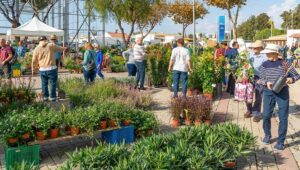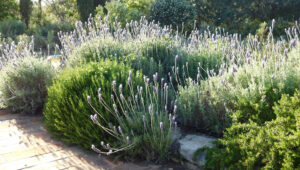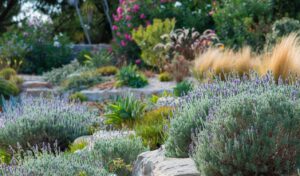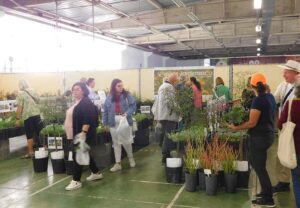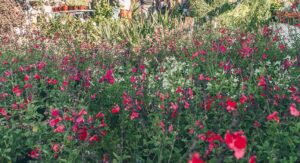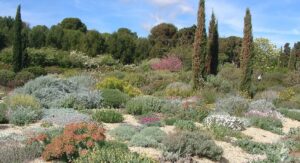The end of one year and the beginning of the next is a good time to take stock of the garden. If you can make notes on what has worked well and what problems you had, this will be a great help when looking at restocking and searching through seed lists to choose new varieties, improve harvests and help disease resistance.
If you like to plant and sow seed according to the lunar calendar, check on the best dates for the coming weeks. This is a time of preparation and the cooler days mean working outside can be a real pleasure on a sunny day, without the relentless heat of summer.
For gardeners used to northern European conditions, it is widely believed that in these cooler and more humid months, the garden will be at rest and does not need attention – this is exactly the opposite in Mediterranean climates. Where winters are mild, and frosts are rare or missing entirely, plants less demanding of light and heat can thrive and continue to be productive without the need to intensively irrigate.
Such plants include the leafy vegetables such as chard, cabbages, cauliflowers, broccoli, lettuces and spinach. Those fruit and vegetables in the Solanaceae family, which love the light and heat, are not the first choice for winter growing, except in very favoured and sheltered southern areas. These include tomatoes, aubergines and peppers, and this also applies to the Cucurbits – melons, cucumbers and courgettes are best left for warmer days. If you can give some protection from cooler night-time temperatures then even these heat-loving plants can be sown and prepared for later planting out.
Although the rate of growth is slower at this time of year than in warm late spring and early summer days, it is still possible to have a productive vegetable garden. This would also be a good time to pay attention to soil improvement with the help of winter rains and heavy dews to increase moisture. Incorporating any home garden compost or manure is best done now and growing green manures, such as vetch or field beans is much easier in the winter.
January garden tasks
■ Continue tree and shrub planting, dig holes and incorporate composts while the soil is moist and open.
■ Continue making repairs to fences, shade structures, chicken houses etc. Check over garden tools and look out those old seed packets. Seed does not grow if left in the packet!
■ Fertilise bulbs while the soils are moist and the bulbs are in active growth. It is easier to see where they are when they are in leaf; use long-term organic fertilisers such as horse manure, bone meal etc. and try to spread just before rain.
■ Continue harvesting leafy crops such as spinach and cabbage varieties.
■ Sow tomatoes, aubergines, courgettes and peppers for later transplanting.
■ Plant out garlic bulbs.
■ Use protected seed beds, covered with a fleece or mini cloche, to encourage early growth in leeks, endive and carrots.
■ Spread compost around fruit trees and vines, move any mulch to one side and replace before the warmer late-spring days.
■ Finish any pruning of fruit trees before leaves return; in warmer areas start pruning of citrus after harvesting fruit.
■ Planting of dormant fruit trees can continue, including olives, hazelnuts and stone fruits such as peaches and apricots.
■ Check irrigation tubing and add extra water butts around the garden or near raised beds to collect any rain water – saves you carrying watering cans. Keep water butts covered.
■ Place potted cacti in the greenhouse or under cover when there is a lot of rain and, if necessary, it is a good time to pot these on into larger pots.
By Rosie Peddle
|| features@algarveresident.com
rosie@thebtf.net | 289 791 869
Mediterranean Gardening Association – Portugal










